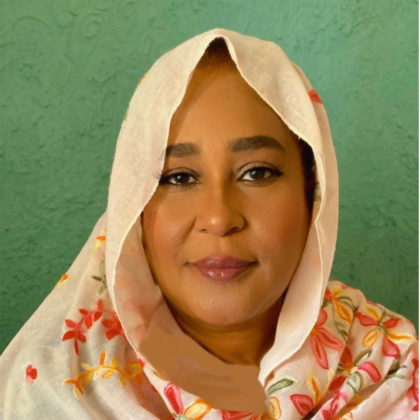Working as an art therapist in Sudan
Spotlight
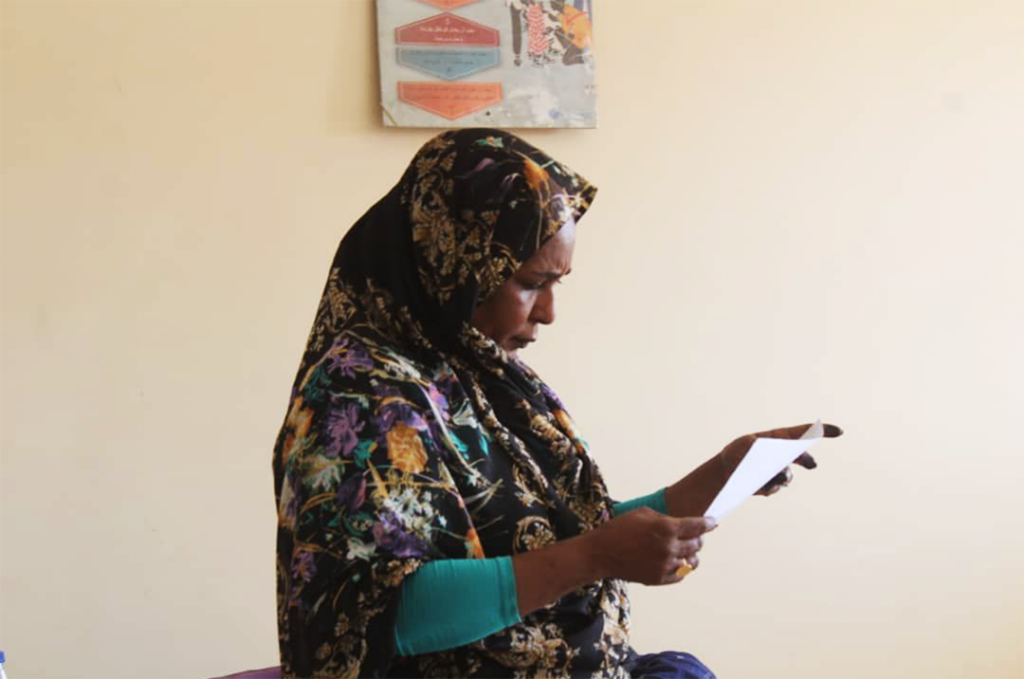
Who are you?
I am Sara. As far as I am aware, I am the first professional art therapist in Sudan.
Where I work as an art therapist
I established a centre for training and arts in Sudan. I would run art therapy sessions inside the centre or outside if needed, such as for refugees, young people living in correctional centres, and people who had been subjected to personal attacks.
During the war in Sudan, the centre, like everything else, was destroyed.
I have now moved to another city where I have opened a new temporary centre to practise my work, as well as assisting war survivors in shelter camps.
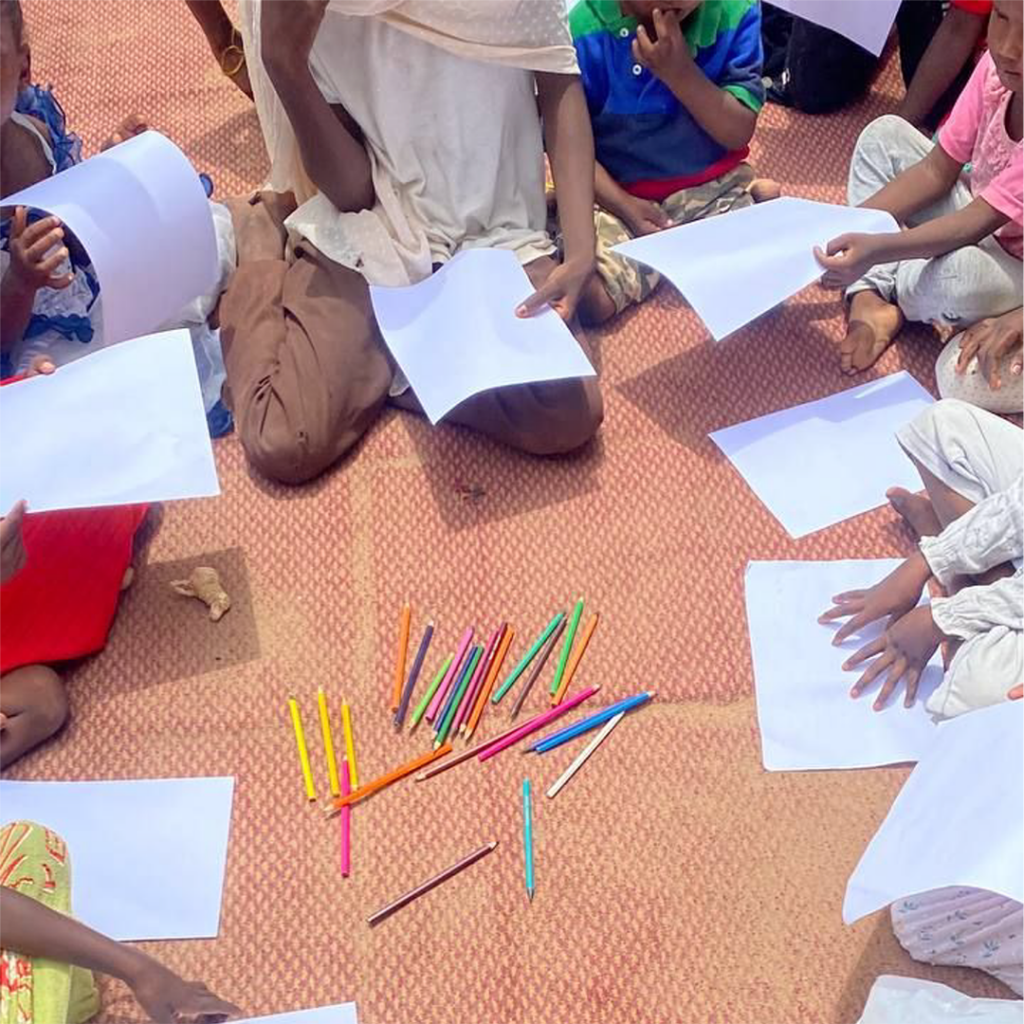
Getting here
Getting here was not easy due to the lack of this specialty in my country. The journey was very difficult. I worked in nurseries, and I felt frustrated by the traditional means and methods of learning for children. I felt that there was an easier way to transfer knowledge.
Then I started working in art centres and trained in all fields of art; this was the beginning. I saw that it was not just drawing, but rather, a language and a dialogue through which people can share their feelings, desires, needs, and fears that spoken language cannot always express.
I obtained my undergraduate degree from the University of Khartoum and continued my education in Egypt, gaining a master’s degree in education and art therapy. Since then, as well as continuing to work with children and young people, I began to receive requests to rehabilitate patients after a period of medical treatment, as well as people who were subjected to domestic violence.
I have since worked and trained in art centres, educational institutions, rehabilitation centres, and now in the war survivor shelter camps.
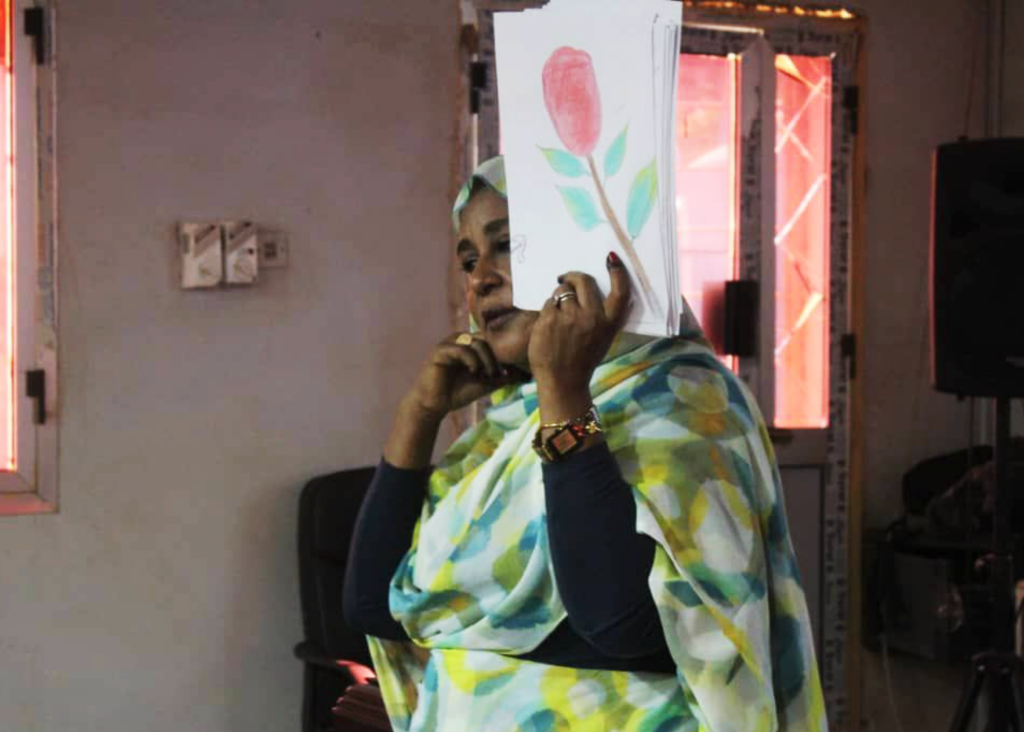
A typical day at work
The sessions and tools differ depending on each person. As the response to an invitation to make art is often ‘I am not good at drawing’, we sometimes begin by drawing together. Over time it becomes clear that the invitation is not to create an artistic work, but rather an artistic expression through which a person can express their internal feelings.
Collectively, voluntarily and with support from the remaining resources from my old centre, I have been able to provide art therapy workshops to over 950 displaced people in the city where I now live.
What I love about what I do
The happiest moments for me are when the treatment period ends and the person feels in good mental health, enabling them to face others, face themselves, and continue their life. Art therapy can allow them to discover themselves and express their true feelings, needs and desires when spoken language is unable to do so.
I am proud that medical professionals in Sudan now have the confidence to refer patients to art therapy to help them rehabilitate and adapt after completing their medical treatment. Medical treatment can reduce or eliminate the symptoms, but it may not reach the root of the problem.
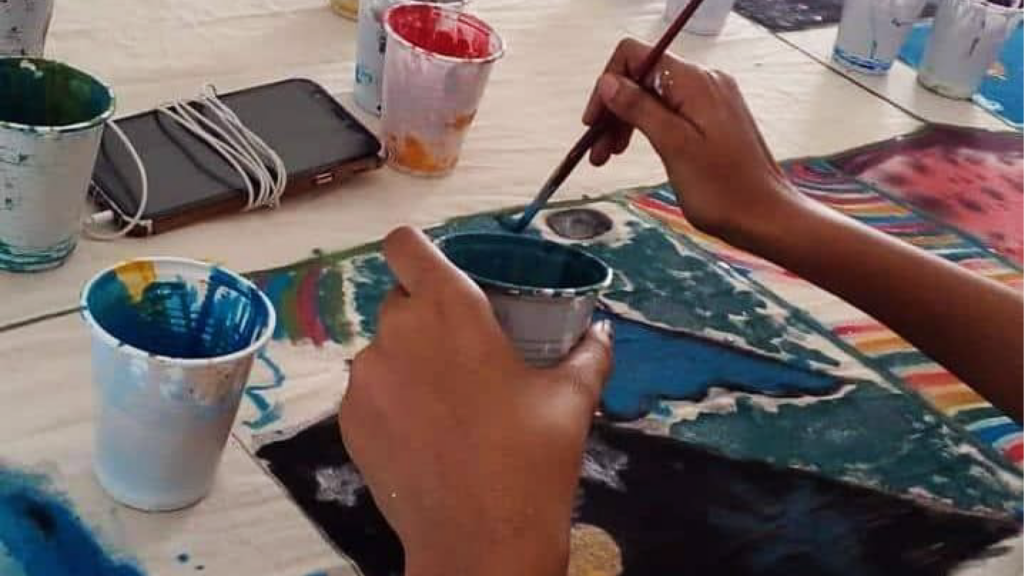
How I look after myself in my role
I believe in the necessity of self-learning. As a therapist I really need to support myself by continuing to learn and train on everything new in the field.
I also draw pictures, keep them, and reflect on them myself after some time. This helps me to relax and get back to work. Love, acceptance, trust from those around me, and the full support of my family motivate me to continue my work.
What I wish I had known when I started
I had hoped that there would be awareness of the importance of mental health and the role of the arts in my country, and that there would be training in the field of art therapy there.
However, it was a struggle to access training. It would have been helpful to know that studying psychology and counselling locally would help me start on a path towards training to become an art therapist.
Moving forward
My society is already suffering from a negative outlook towards mental illness. We urgently need to support awareness, guidance, and training in mental health, especially after my country was exposed to war, which forced many to flee.
My dream and my humanitarian mission is to be able to spread the awareness of art therapy in my community by offering sessions, workshops and lectures and continuing to participate in more national and international conferences.
Write a spotlight article
We’re looking for more spotlight articles from art therapists across the UK and from around the world. If you are interested – get in touch.
